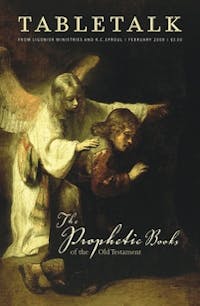
You have {{ remainingArticles }} free {{ counterWords }} remaining.You've accessed all your free articles.
Unlock the Archives for Free
Request your free, three-month trial to Tabletalk magazine. You’ll receive the print issue monthly and gain immediate digital access to decades of archives. This trial is risk-free. No credit card required.
Try Tabletalk NowAlready receive Tabletalk magazine every month?
Verify your email address to gain unlimited access.
